
Across Africa, there has historically been a heavy reliance on cash, with around 95 percent of retail transactions taking place in cash. Global and local organizations are investing in innovative digital payment systems and new disruptive payments tools to displace cash, while delivering new levels of inclusion to the benefit of consumers, businesses and governments. One of the leading technology companies in this realm is Mastercard.

We recently spoke with Gilberto Caldart, President of International for Mastercard, to help us unpack the key points about how cash is being displaced in Africa.
 Gilberto Caldart
Gilberto Caldart
President of International for Mastercard
Why are cash economies hampering growth in Africa?
While seemingly inexpensive, cash comes at a high cost to governments, businesses and consumers, placing unnecessary strain on economies. The printing, distribution and handling costs of cash alone place as much as a 1.5 percent burden on national GDP. The impact is even greater if you take into account the costs associated with fighting illegal activity, fraud, corruption and the shadow economy – all of which are fueled by cash.
From a consumer perspective, cash is inconvenient, dangerous to carry and expensive. In South Africa for instance, cash costs consumers R23 billion a year, with the costs disproportionately carried by low-income earners. This remains true across several other African countries where people often have to trade off the demands of an hourly job with the need to travel long distances to access cash or stand in line to pay a bill. Many people also face the danger of being robbed when they come home with their wages.
Cash also has several negative implications for merchants and small businesses. Not only does it cost these businesses to access, secure, transport and store cash, but it can also hamper business growth if they do not accept electronic payments. For example, entrepreneurs cannot access the credit or loans they need to grow their businesses without a financial record or credit history. They can also lose out on revenue when their customers don’t have enough cash to pay for goods.

You can’t talk about cash without talking about financial inclusion. What is the opportunity to expand financial inclusion in Africa, and what are the broader socio-economic benefits of doing so?
According to the Global Findex, 57 percent of people in sub-Saharan Africa are financially excluded. Without access to formal financial tools, these people remain locked out of many economic activities, have extremely limited retail choices, cannot access credit and often pay more for goods and services.
While this statistic is much higher than the global average (31 percent), good progress has been made over the last few years, driven by several factors including supportive government policies and a new generation of financial tools and services accessed by mobile phones.
However, more still needs to be done if Africa is to realise the full socio-economic benefits that financial inclusion can deliver including greater income and social equality, an expanded middle class, and more human fairness and dignity.
At Mastercard, we believe that financial inclusion is the cornerstone for inclusive growth. By providing access to financial tools and helping people use those tools, we can break down economic barriers and contribute to their upward mobility and a better quality of life. The result is prosperity shared among all segments of society.
How does Mastercard approach financial inclusion, and what are the benefits from a business perspective?
Financial inclusion is part and parcel of our business strategy and vision to create a world beyond cash. We bring our technologies and infrastructure, our capital and creativity, and our ability to scale solutions to support people’s journey from poverty to prosperity. But we can’t do it alone. That is why we bring together an ecosystem of different players, and partner with both the private and public sectors to make a sustainable impact.
For example, we partnered with the Ministry of Finance and major Egyptian banks on a custom solution for the government to pay its employees safely and efficiently. It is now one of the largest government payroll card programmes in the world, with more than 4.6 million public sector employees receiving their salaries electronically. Today, we’re working with the government to build an interoperable mobile money platform linked to citizens’ national identification, enabling 54 million Egyptians to participate in the formal economy.
Through partnerships such as this, we are growing our business while addressing some of Africa’s most pressing challenges. Our approach is based on the fundamental conclusion that we do well by doing good – that we can make money and make a difference at the same time. When we do this, we create a sustainable system where everyone benefits — citizens, customers, governments and businesses including Mastercard. The integration of purpose into our business strategy helps us to attract top talent, grow our customer base and create brand affinity with people, businesses and governments.

How has Mastercard transformed its business in Africa as part of your strategy to create a “cashless Africa”?
About 10 years ago, we started to ramp up investments on the continent with a laser focus on executing our global strategy of creating a world beyond cash. As a technology company, we started to build out payment infrastructure and create new ecosystems, while innovating locally to benefit our customers. In order to create scale and make a broader impact, we changed our business model from partnering with only a few of the largest banks to working with a range of stakeholders, including governments, mobile network operators, fintechs, technology companies, merchants and others.
We also expanded our geographical footprint and employee base significantly, combining local know-how with our global expertise. As a result of these efforts, our cards are now issued in 58 countries and accepted in 60 countries across the Middle East and Africa region. Our African business remains an increasingly important part of our company’s emerging market growth strategy with volumes growing at double the global rate.
Africa is a widely diverse continent. How is Mastercard innovating locally to solve country-specific needs?
Turning cash into digital transactions is all about designing relevant solutions that address the needs of people, which can vary by geography, individual preference and community. We’ve spent significant time and resources understanding their world, and how our technologies fit – or don’t fit – into it. This has enabled us to build strategies that can be scaled, while providing locally relevant solutions that actually get used and impact lives.
In 2015, we set up the Mastercard Lab for Financial Inclusion in Nairobi with support from the Bill and Melinda Gates Foundation. It serves as an R&D hub to develop cost-effective solutions for people who don’t have access to existing digital payments tools. One example is the Mastercard Farmers Network, which is helping small farmers in Kenya, Uganda and Tanzania to sell and accept payment for their produce via a mobile phone. By connecting them directly to buyers, these farmers can get the best prices for their produce without going through a middle man.
Another example is our Mastercard QR digital payment and acceptance solution, which enables people to use a mobile phone to pay merchants by scanning a QR code. For merchants, the solution provides an affordable way to accept digital payments at the point of sale — even where traditional card payment infrastructure, or an electric grid, may not be present. We have leveraged this technology across several African markets, and integrated it into innovative business models like Pay-As-You-Go, which gives people the ability to pay for the things they need as they use them. We recently partnered with Angaza, a leading last-mile technology distributor, to increase access for millions of people to affordable necessities, like solar home systems and water pumps, by leveraging Mastercard QR technology.
How is Mastercard supporting small business?

Small and medium businesses represent about 80 to 90 percent of the total businesses in Africa, contributing significantly to employment and economic growth. Unfortunately, many of these businesses lack the tools, knowledge and financial services that they need to grow their businesses.
We use our services, partnerships and technologies to help small business owners manage their records, access market information, build a financial footprint and use digital communications channels to receive training and business advice.
For example, we launched a first of-its-kind digital lending initiative with Unilever to empower small and micro business owners in Kenya. This partnership gives shopkeepers access to short-term, affordable loans to purchase Unilever products so they can stock what they can sell, not just what they may be able to afford on any given day. It also provides a tailored education program that helps entrepreneurs gain the skills and knowledge to grow their business and use the credit facility effectively.
+ posts
Thanks for reading and for your interest in Africa. Content is produced in collaboration between Africa.com’s editorial team and our partners — including nongovernmental organizations, private sector stakeholders, agencies and institutions. If you are interested in telling stories in an impactful way to shine a spotlight on a particular issue, please email editor@africa.com. We look forward to hearing from you.
Like this:
Like Loading…

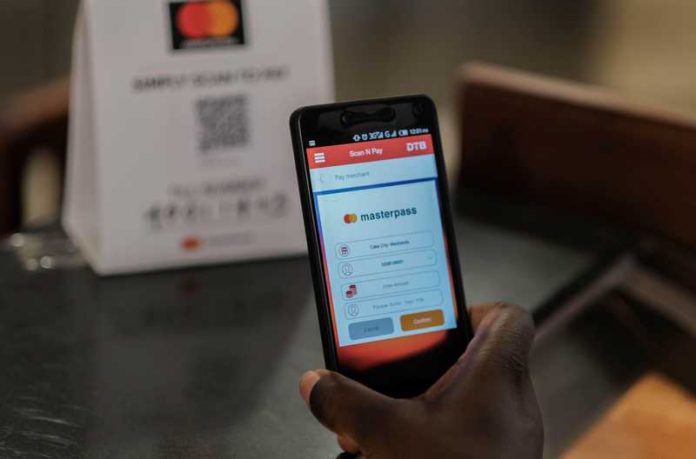




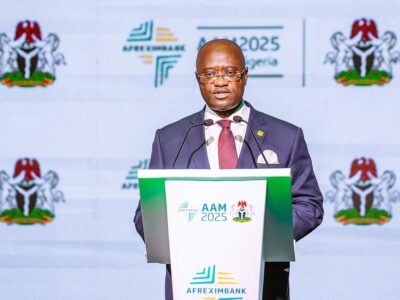
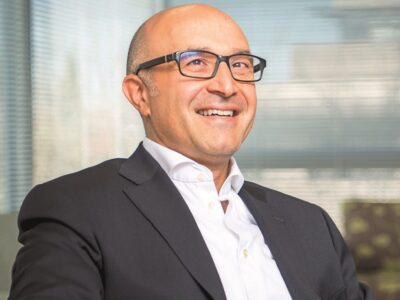
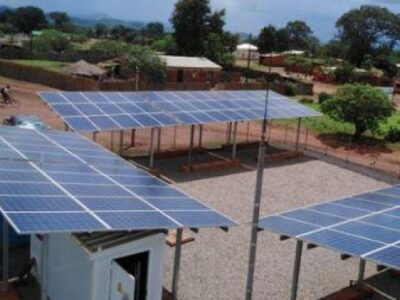
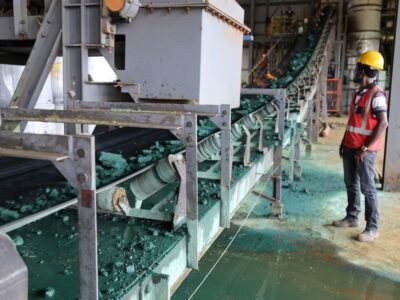

Comments